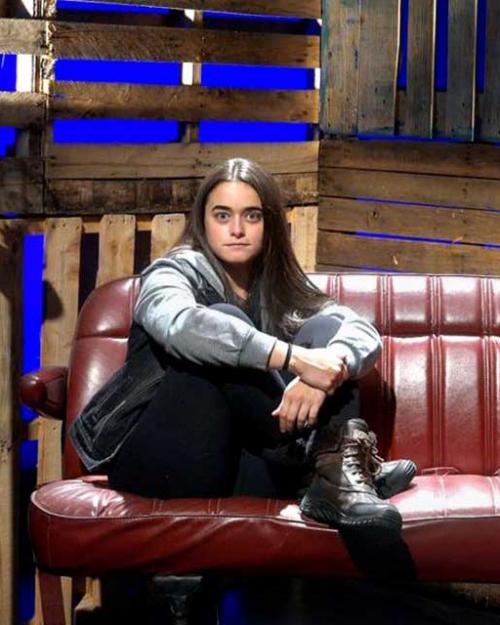Participants in a new class – designed to bring together formerly incarcerated and traditional Cornell students – have written, workshopped and performed an ensemble theatrical piece that will premiere online May 16 at 2 p.m.
PMA 4801: Advanced Studies in Acting – Devising Re-Entry, taught by Bruce Levitt, professor of performing and media arts in the College of Arts and Sciences, includes three former Cornell Prison Education Program (CPEP) students and five traditional undergraduates.
“Confinements,” which runs a little over an hour, explores the ways people are cut off from full participation in society. Free tickets are now available through the Schwartz Center for the Performing Arts.
The three-credit course was the brainchild of Levitt and CPEP’s Betsye Violette, who facilitates college programs for Cornell at two prisons – Five Points in Seneca County and Auburn Correctional Facility in Cayuga County.
“Usually most of our CPEP guys’ interaction with Cornell students is inside prison, where there’s a wonky power dynamic that gets set up,” Violette said. “But what I think is really lovely about this project is that the playing field is level. Everyone is being vulnerable in the same ways.”
Each week, the class used prompts to facilitate deep conversations and monologue writing.
“Bruce would always send us out with these ambiguous and obscure homework assignments, like ‘Write about something you like,’ or ‘What is your identity?’” said student Jesse Johnston, who was incarcerated for a decade and took college classes through CPEP before being released in 2018. Johnston is now a political science major at the University of Rochester, with law school ambitions.
Daniella Gonzalez ’21, who hopes to become a doctor, said that in the beginning of the semester, she was hesitant to share.
“But everyone was very welcoming. There were no judgments,” she said. “It was interesting to realize how similar we were. We’d experienced drastically different circumstances, but our feelings were the same.”
Said Johnston: “It’s a big responsibility for anyone, to have people open up to you about their experiences, let alone being someone most people don’t trust at all.”
“Confinements” includes his monologue about being left for too long in a van by his mother when he was a child.
Using theater to work through trauma is “very important, even with no audience,” said Levitt, a longtime proponent of theater as a therapeutic tool for performer and audience alike.
“It [PMA 4801] was my fifth class of the day on Zoom,” Johnston said, “and I still looked forward to it.”
Once the class had amassed a collection of several dozen written and workshopped pieces, they selected which to include in a cohesive performance piece, stringing them together with emotional arc, comic relief and thematic pairings in mind.
In February and March, observing COVID-19 safety precautions including distancing and masking between shots, the students were filmed by Steven Blasberg, master electrician at PMA, and Daniel Halstead ’23, performing their parts on soundstages designed by Sarah Bernstein, senior lecturer in costume design. One student performed his monologues in his car.
In April and May, the piece was edited by Levitt and Joey Moro ’12, and with sound design by sound designer Warren Cross.
“Confinements” offers viewers the opportunity to witness the experiences and thoughts of people so seemingly different – including a 41-year-old man from a rough background and a young college student from a loving family – on the same stage and given equal weight.
Levitt and CPEP plan to offer the class again in the fall, and hope to enroll seven CPEP alumni and seven Cornell students.
Emily Hopkins is a development associate with CPEP.




